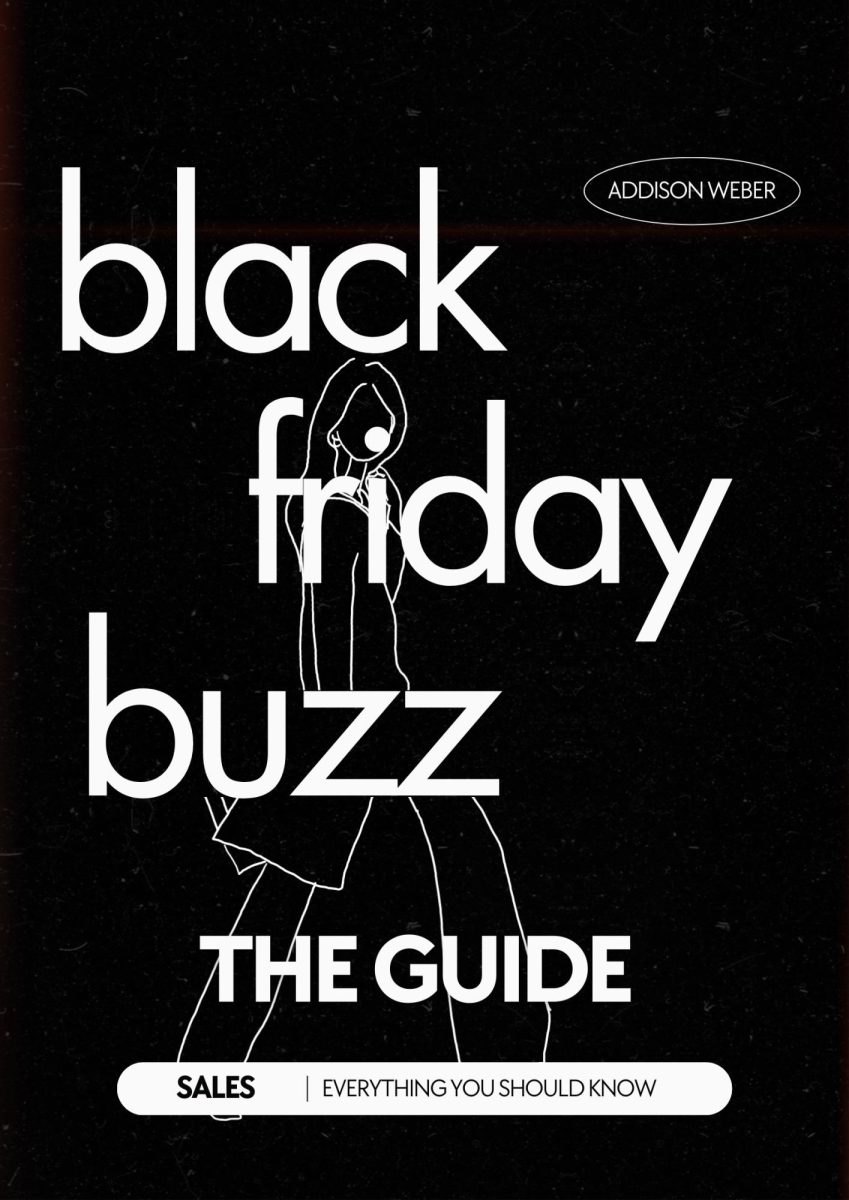With Thanksgiving break here, shopping for the holidays becomes more prevalent. After we share our thanksgivings to the people we love, it’s just as important to snag that thing they want for Christmas—especially with 50% off!
History and Background
“Black Friday” is a term used to describe the post-Thanksgiving holiday shopping phenomenon where retailers mark down the prices of their products significantly. And while this term marks the light of financial crises, there is a darker history to this term.
In the 1950s, the term was trademarked by Philadelphia city police, describing the chaos that resulted from the Friday following Thanksgiving. Every Saturday of the year, the city held an Army-Navy football game, and Philadelphia cops were called to take care of long shifts, large crowds, and loads of traffic. Shoplifters took advantage of this situation to large extents, further amplifying the negative connotation of Black Friday. After a failed attempt to change the name to “Big Friday”—to rid the title of negative connotations—in 1961, retailers managed to reinvent Black Friday into a positive, profitable holiday for American stores.
Shopping trends
Due to a great surge in online shopping, during and after the COVID-19 pandemic, it is predicted that this year (2024) is bound to maintain a balance between online and in-person shopping, primarily due to consumer preferences. Additionally, Holiday sales have begun early, allowing eager customers to enjoy early access discounts to items they have been eyeing! According to a Baylor University consumer behavior expert, James A. Roberts, Ph.D., electronics are bound to dominate sales and act as “the driving force for Black Friday 2024.” This includes laptops, gaming consoles, televisions, and even smartwatches.
Consumer Behavior
Do you find yourself more drawn to the “half off” label marked all over the store windows? Well, psychology has a big role in that! Psychologist and author, Robert Cialdini, established principles of psychology behind sales in his book Influence.
- Reciprocity
By definition, reciprocity is “the practice of exchanging things with others for mutual benefit, especially privileges granted by one country or organization to another”. One psychological aspect that draws consumers so heavily into the idea of sales is the perception of needing to return a favor. For example, if a company gives you a generous sale, you might feel inclined to take advantage of that and purchase something in return.
- Commitment and consistency
A great marketing strategy is selling an object that requires consistency. Many retailers are aware that many people have motivations to remain consistent to their goals. This marketing technique is effective, because it encourages repurchases and leads to an overall increase in sales.
- Social Proof
The mass majority of buyers are actually influenced through friends and family recommendations. This links back to the idea of us subconsciously liking the same things as our peers. Marketing strategies have taken advantage of this psychosocial desire by further investing into influencer marketing, to build that connectivity between buyers and sellers.
Scarcity
- Liking
Positive emotional responses lead to repurchasing. This is why many companies prefer using celebrity reps who are either well-liked or friendly, to further ensure sales are being profited.
- Scarcity
One big psychological motivator for buyers is the idea of “limited-time”. This encourages buyers to quickly scrounge for what they believe is a unique opportunity—a low price that is bound to spike back up soon. This is a marketing tactic used by many retailers, and is primarily why Black Friday sales are such a hit.
- Authority
Authority is when buyers can be persuaded by approval of expert individuals. For example, skincare products that are “dermatologist approved” might make consumers more inclined to purchasing products with a professional opinion guaranteeing satisfaction.
Confirmed Black Friday Deals for your Favorite Brands:
While many brands are yet to announce their sales, below are some listed Black Friday deals that are popular amongst highschool students.
Amazon: Up to 90% off (incl. discounts on appliances/tech/beauty)
Dyson: Up to $300 off
Ulta: Up to 50% off
Sephora: Up to 50% off
Pacsun: Extra 30% off + Free Shipping
Lululemon: Early Access for Members (Varied Discounts)
Target: Up to 50% off select items
Nike: 25% off
Adidas: Up to 25% off shoes
New Balance: Up to 40% off (early access for members)
Reebok: Up to 60% off
Sources:
https://www.business.com/articles/the-psychology-of-sales/
https://www.history.com/news/black-friday-thanksgiving-origins-history


